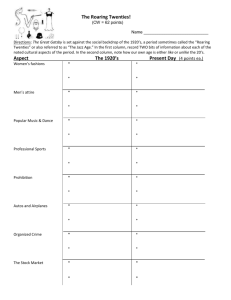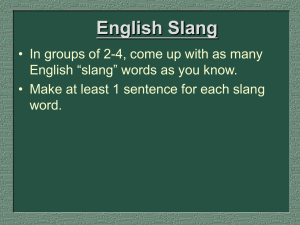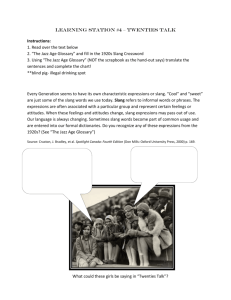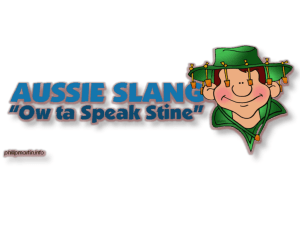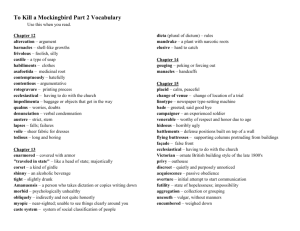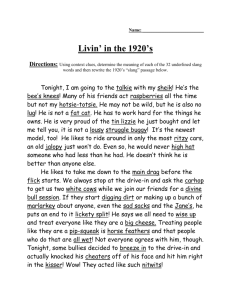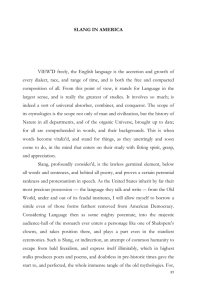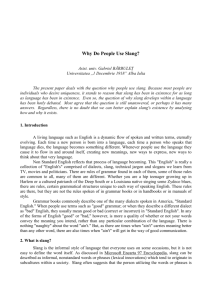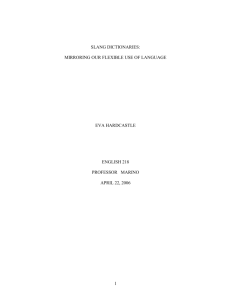Slang and American Youth Cultures
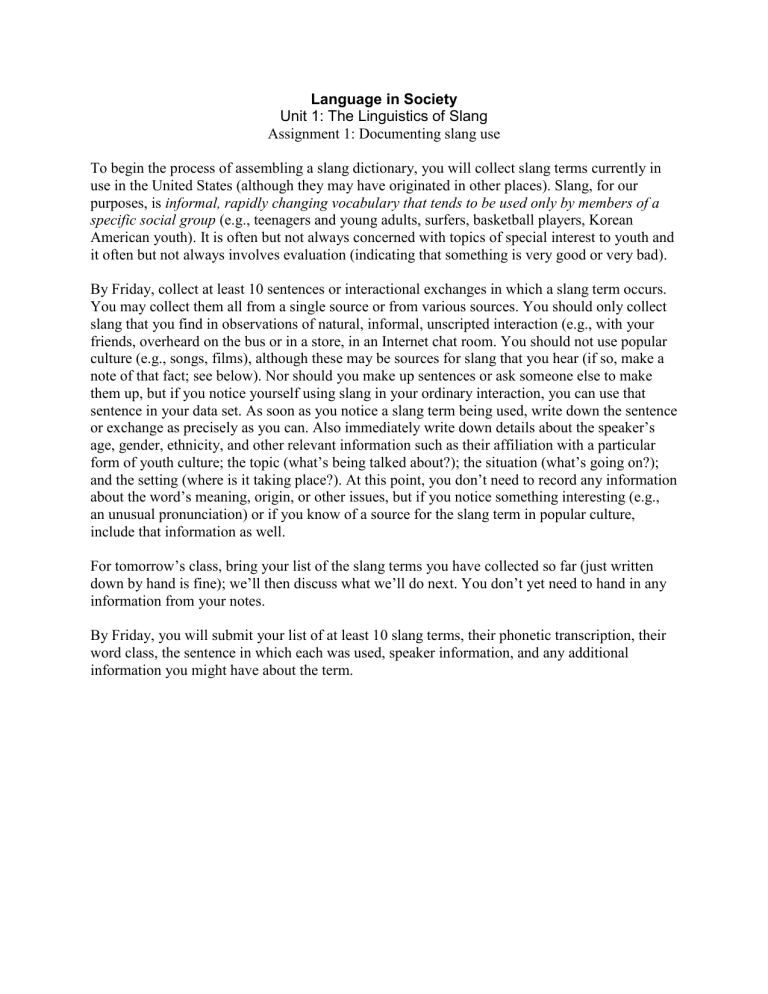
Language in Society
Unit 1: The Linguistics of Slang
Assignment 1: Documenting slang use
To begin the process of assembling a slang dictionary, you will collect slang terms currently in use in the United States (although they may have originated in other places). Slang, for our purposes, is informal, rapidly changing vocabulary that tends to be used only by members of a specific social group (e.g., teenagers and young adults, surfers, basketball players, Korean
American youth). It is often but not always concerned with topics of special interest to youth and it often but not always involves evaluation (indicating that something is very good or very bad).
By Friday, collect at least 10 sentences or interactional exchanges in which a slang term occurs.
You may collect them all from a single source or from various sources. You should only collect slang that you find in observations of natural, informal, unscripted interaction (e.g., with your friends, overheard on the bus or in a store, in an Internet chat room. You should not use popular culture (e.g., songs, films), although these may be sources for slang that you hear (if so, make a note of that fact; see below). Nor should you make up sentences or ask someone else to make them up, but if you notice yourself using slang in your ordinary interaction, you can use that sentence in your data set. As soon as you notice a slang term being used, write down the sentence or exchange as precisely as you can. Also immediately write down details about the speaker’s age, gender, ethnicity, and other relevant information such as their affiliation with a particular form of youth culture; the topic (what’s being talked about?); the situation (what’s going on?); and the setting (where is it taking place?). At this point, you don’t need to record any information about the word’s meaning, origin, or other issues, but if you notice something interesting (e.g., an unusual pronunciation) or if you know of a source for the slang term in popular culture, include that information as well.
For tomorrow’s class, bring your list of the slang terms you have collected so far (just written down by hand is fine); we’ll then discuss what we’ll do next. You don’t yet need to hand in any information from your notes.
By Friday, you will submit your list of at least 10 slang terms, their phonetic transcription, their word class, the sentence in which each was used, speaker information, and any additional information you might have about the term.
